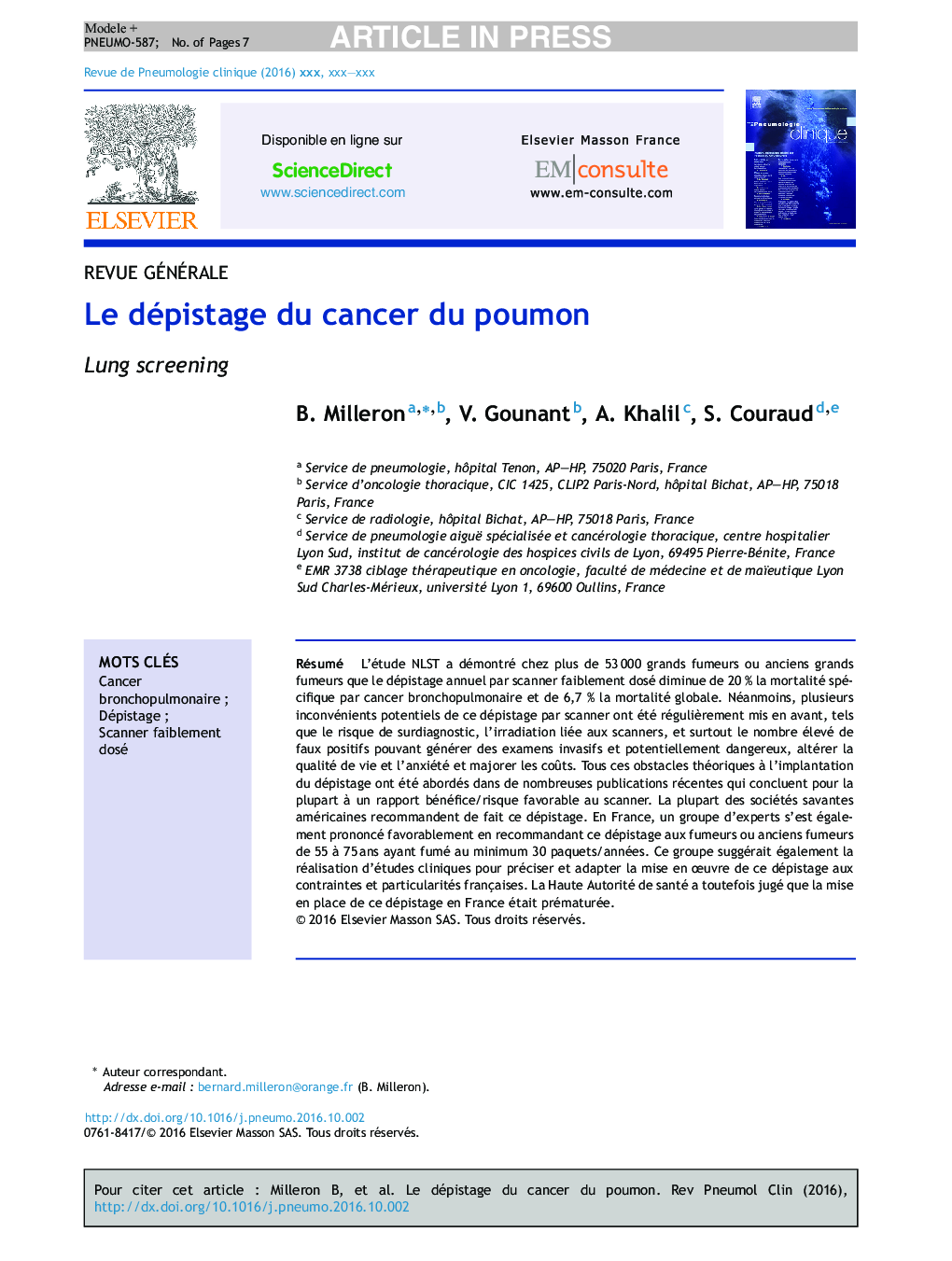| Article ID | Journal | Published Year | Pages | File Type |
|---|---|---|---|---|
| 5674478 | Revue de Pneumologie Clinique | 2017 | 7 Pages |
Abstract
The NLST study found in more than 53,000 (former-) heavy smokers that annual screening with low-dose CT-scan (LDCT) reduced lung cancer mortality and overall mortality by 20% and 6.7% respectively. However, several potential harms of such screening strategy were underlined: over-diagnosis bias, irradiation risk, and the high rate of false-positive results that could lead to futile invasive (and potentially harmful) exams, to impact quality of life, to increase patient's anxiety and costs. All these concerns were largely debated in several recent publications. Most of them concluded in a risk/benefit ratio favoring screening strategy by LDCT. Conversely, most of American academic societies currently recommend LDCT-based lung cancer screening. In France, a taskforce edited a common statement recommending screening smokers or ex-smokers, from 55 to 75Â years old who have smoked at least 30Â packs/year. The taskforce also underlined the need for clinical trials aiming to translate screening strategy to the French setting. However, the French Health Authority recently claimed that lung cancer screening was not relevant in the current setting.
Related Topics
Health Sciences
Medicine and Dentistry
Infectious Diseases
Authors
B. Milleron, V. Gounant, A. Khalil, S. Couraud,
